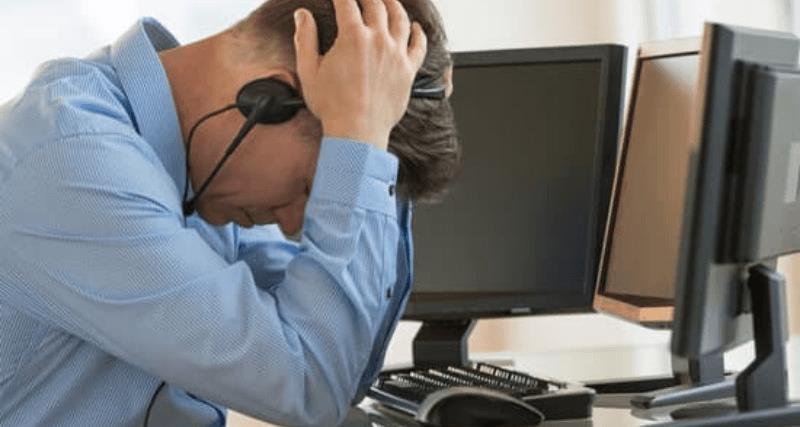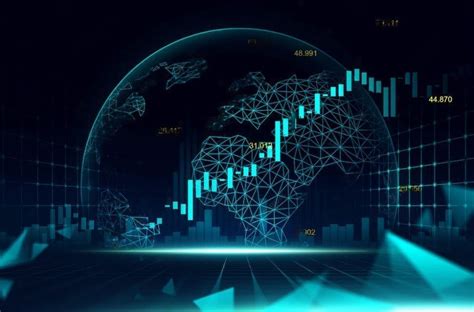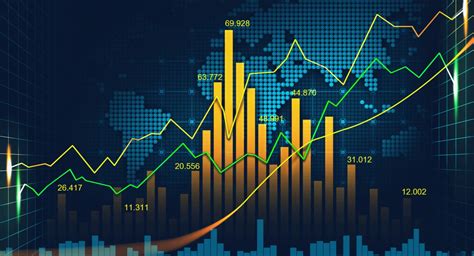Table of contents
As Warren Buffett puts it, “Risk comes from not knowing what you’re doing.”
This quick guide cuts through the noise with real-world stories, hard truths about mind tricks and leverage traps, and straight-up tactics to dodge the pitfalls. If your wins feel few and far between, stick around—relief is on the way.
1.Why Is Losing Money in Forex Trading So Common?

Have traders ever watched a promising Forex position vanish in seconds? That experience springs from a mix of emotional decision-making and market volatility. A report by Investopedia reveals that over seventy percent of retail Forex traders lose money within their first year of trading. That unsettling statistic reflects a landscape where lack of education and unrealistic expectations collide.
Key contributors to common Forex trading losses include:
Lack of education and knowledge
Emotional decision-making under pressure
Absence of a solid trading plan or strategy
Poor risk management practices
Scams and fraudulent brokers offering false signals
John Miller, Chief Analyst at Forex Insights and holder of a Chartered Financial Analyst certificate, remarks “Retail traders often follow bad advice without verifying credentials; that practice guarantees frustration.” A personal trading memory clarifies this point. A novice trader journey involved wiping out two demo accounts before recognizing the need for structured learning and realistic goals.
Risk management emerges as a lifesaver when paired with discipline. Questioning every trade decision prevents overtrading driven by impatience. Reviewing performance metrics on a daily basis helps identify recurring mistakes. Adopting an expert-endorsed curriculum and verifiable broker recommendations builds trust. Enthusiasts who combine expert guidance, reputable certifications and hands-on practice transform initial losses into profitable growth.
2.Forex Psychological Traps
Understanding the mental hurdles that trip up forex traders unlocks better decision-making and risk management.
Confirmation Bias in Forex
In forex trading, confirmation bias skews market analysis by making us see only data that fits our trading strategy. This cognitive bias leads to loss aversion, selective perception of currency pairs, and flawed decision-making, undermining effective risk management.
Fear and Greed Dynamics
Man, fear and greed in market psychology are like frenemies—fear makes you bail on winners, while greed pushes you into risky bull market plays. When investor sentiment swings, emotional trading cranks up market volatility and tests your risk tolerance in both bull and bear cycles.
Overconfidence After Winning Trades
Inflated Success: A few winning trades spark overconfidence, ignoring probability and statistical significance.
Loose Discipline: Traders ramp up lot sizes without updating their trading plan.
Drawdown Risks: Overestimating outcomes leads to deeper drawdowns and erodes long-term profitability.A robust trading psychology, strict risk management, and steady emotional control preserve consistent trading performance.
3.Forex Psychological Traps
Even solid strategies can falter when your mind plays tricks—let’s uncover the top three psychological pitfalls in Forex trading.
Confirmation Bias in Forex
Traders often hunt data that backs their bias, ignoring signals that clash with their view. In Forex, this skews technical analysis and blinds you to trend reversals, ramping up loss potential.
Fear and Greed Dynamics
Fear and Greed can turn the market into a roller coaster—fear makes you bail early, while greed pushes you to chase winners too hard. It’s like FOMO meets panic; mastering emotional regulation stops you from over-trading or petrifying on positions. Keep it chill, stick to your plan, and your P&L will thank you.
Overconfidence After Winning Trades
Small wins can inflate your ego, leading to riskier bets.
Ignoring stop-loss discipline post-win is a trap.
Consistent review of trade journals tames swagger.
4.Forex Leverage Risks
Leverage can boost gains but magnifies losses. Let’s explore key risks in Forex leverage and how to mitigate them.

Margin Calls and Liquidation
A margin call occurs when your account equity dips below the broker’s maintenance margin requirement.
Forced liquidation kicks in if you can’t top up your margin loan, triggering automatic asset sale to cover losses.
Effective risk management means monitoring margin levels and keeping a buffer above the margin requirement.
Leveraged Position Volatility
When you crank up your leverage, even minor market fluctuation turns into a wild ride—profit and loss swings feel like a rollercoaster. This crazy magnification means price swing can wipe out your position faster than you’d expect, so you gotta size your positions wisely.
Impact of Lot Sizes
Trading volume: Bigger lot size equals larger exposure to price movement.
Liquidity & slippage: High volumes on thin markets can spike transaction costs.
Bid-ask spread effect: Larger orders may widen the spread and impact execution.
Using Leverage Responsibly
Set stop-loss orders to cap downside risk.
Align leverage levels with your risk tolerance, financial goals.
Perform thorough market analysis and due diligence.
Build a trading plan with margin control, position sizing, capital preservation.
5.Which Strategies Reduce Losing Money in Forex Trading?
Explore three proven strategies that help you dodge those costly Forex pitfalls and keep your account in the green.
“Algorithms don’t get emotional—they stick to the plan,” says John Smith, Head of FX Research at GlobalTrade.
Trend-Following Systems
Trend-Following Systems rely on Technical Analysis—Moving Averages to smooth price, MACD for momentum, Bollinger Bands for volatility. Traders use Trend Identification, Parabolic SAR, Relative Strength Index (RSI) to confirm signals.
Risk Management via Stop-Loss Orders and Trailing Stops locks in gains and limits drawdowns.
Range-Bound Trading Approaches
Range-Bound Trading Approaches thrive in sideways markets or “dead zones.” By pinpointing Support and Resistance Levels and applying Oscillators like Stochastic RSI or RSI, traders exploit Mean Reversion setups. Bollinger Bands and Fibonacci Retracement act as dynamic bands, while Channel Trading and Price Action cues guide Swing Trading entries.
Automated Algorithmic Strategies
Automated Algorithmic Strategies remove emotional bias by leveraging Trading Bots coded for Algorithmic Trading. Using Quantitative Analysis and extensive Backtesting, these systems execute orders via API Integration with lightning speed. From Market Making and Statistical Arbitrage to HFT and Machine Learning–driven Sentiment Analysis—they adapt to market shifts. Order Execution Algorithms ensure precise fills.

6.Forex Broker Pitfalls
Brokers often eat into your profits with unseen charges and glitchy executions.
Hidden Trading Commissions
Many brokers advertise low commissions but sneak in high spreads or markups.
Payment for order flow and regulatory fees can inflate your transaction costs.
Watch out for brokerage fees buried in clearing fees and other hidden fees.
Slippage and RequotesEver placed a limit order only to get a worse execution? That’s slippage—price slippage during market volatility. Requotes happen when the bid-ask spread shifts mid-trade, causing order delays or rejections. Both can nuke your stop-loss orders and unpredictably impact your execution price.
7.Forex Trading Discipline
Discipline is the backbone of consistent Forex success. Here we cover four pillars—from routine building to performance reviews—to lock in gains and cut losses.
Creating a Trading Routine
Develop a solid trading plan outlining market analysis, entry points and exit points.
Allocate time management blocks for backtesting and automation.
Ensure consistency by sticking to your routine development and journaling for risk management.
Emotion Regulation Techniques
Don’t freak out when the market spikes. Boost your emotional intelligence with mindfulness, deep breathing or quick meditation sessions. Try cognitive reframing and positive self-talk to stay chill. Journaling helps build self-awareness, so you nip stress in the bud before it wrecks your trading psychology.
Maintaining Trade Journals
Detailed Records: Log entry/exit points, market conditions and emotional state for each trade.
Performance Tracking: Use journaling tools to conduct risk assessment and performance analysis.
Learning Process: Analyze mistakes, evaluate strategies and refine your approach continuously.
Continuous Performance Review
Regularly review performance metrics such as win rate, loss rate and drawdown analysis. Conduct profitability analysis and Sharpe ratio checks alongside trade frequency and risk assessment. Set performance goals, apply feedback analysis and tailor improvement strategies for ongoing consistency evaluation.

Conclusion
You’ve seen how brain traps, shaky risk plans, wild leverage and sketchy brokers can wreck your trading dreams. Like building a house, you’ve got to nail down each board—mindset, money rules, strategy, vetting and daily discipline—to keep your ducks in a row and your account intact.
Overleveraging positions beyond their risk tolerance
Trading without a clear strategy or edge
Ignoring risk management rules
Letting emotions (fear, greed) drive decisions
There’s no magic number—what matters is using an amount you can afford to risk. Many experienced traders recommend risking no more than 1–2% of your account on a single trade to prevent catastrophic losses.
Demo accounts help build familiarity, but:
They don’t replicate the emotional pressure of real money
Execution (spreads, slippage) can differ from live accounts
You might develop bad habits if you know it’s not real risk
Leverage amplifies both gains and losses. Even a small market move against you can wipe out a large portion of your account if you’re over-leveraged. Always calculate position sizes so that a 1% adverse move only costs you, say, 0.5% of your equity.
There’s no fixed timeline. Some traders see consistent profits within six months of disciplined practice; others may take years. Progress depends on the quality of your learning, your ability to control emotions, and strict adherence to risk management.
While technical analysis provides entry and exit signals, you also need:
A robust money-management plan
Awareness of economic calendars and news events
Psychological discipline to follow your rules
Mastering your mindset is crucial. Successful traders cultivate:
Patience to wait for high-probability setups
Discipline to stick to their trading plan
Resilience to bounce back from drawdowns without revenge trading
Objectivity to review trades honestly and learn from mistakes






